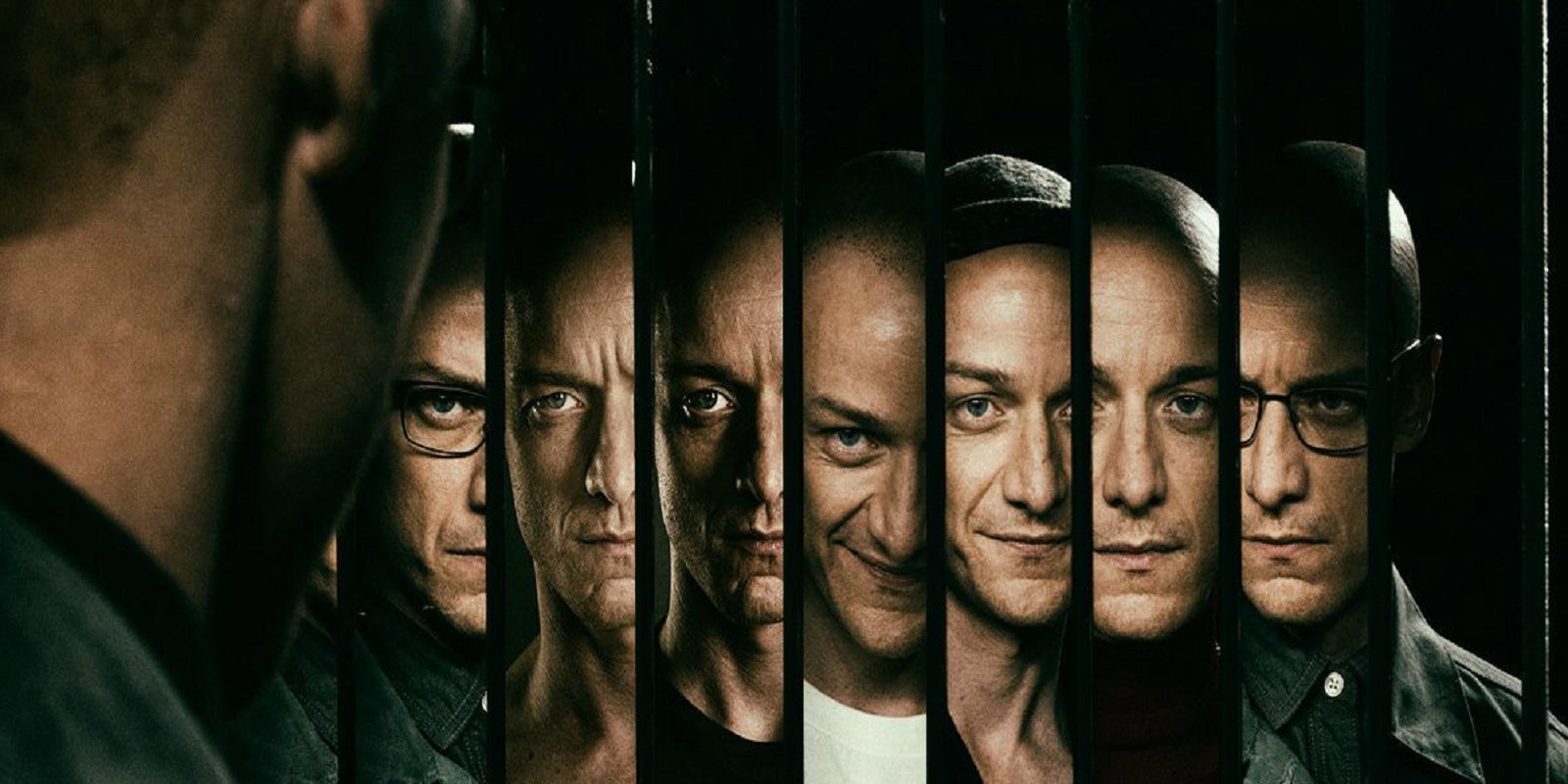Split, writer/director M. Night Shyamalan’s 2016 follow-up to Unbreakable, has long been criticized for its inaccurate portrayal of Dissociative Identity Disorder (DID). The film centers around Kevin, a man with DID and 23 personalities, who kidnaps three girls as his supernatural 24th, The Beast, is about to come into the “light” (a word used in the film to describe which personality is in control). On Tuesday, #GetSplitOffNetflix began trending on Twitter, and, as expected, the hashtag is filled with complaints about the use of DID in the film, mixed with people complaining about those people complaining, and bots. Whether people found a problem with the film’s portrayal of DID, it remains a problematic portrayal, and those who think it’s not should listen to those who do.
Dissociative Identity Disorder is characterized by the National Alliance of Mental Illness as “an involuntary escape from reality characterized by a disconnection between thoughts, identity, consciousness and memory.” The only two things Split gets right about DID is that it usually develops as a result of trauma, shown in the abuse Kevin (James McAvoy) suffered at the hands of his mother, and that it is a controversial diagnosis, even in the professional mental health community. Other than that, the portrayal is guided by stigma and falsehoods, and extremely harmful to those who experience the disorder, and even any mental illness in general.
To explain an antagonist's violent ways as a result of mental illness is a common trope, and dangerous to the public's understanding of mental illness -- especially when the mentally ill are more likely to be victims of violence. Using DID as a device to unsettle audiences has been done before, but Split takes it to a new level by making one of those personalities a supernatural, murderous monster.
Some people on Twitter argue that, because the movie deals with the supernatural, there’s nothing to complain about. However, just because superpowers aren’t real, doesn’t mean violence isn’t. Just because people know that those with DID aren’t superhuman doesn’t mean they don’t fear that they may be violent.
There’s also a lot of falsehoods about how DID works. Three of Kevin’s personalities are working in conjunction to conjure the Beast and keep the three girls hostage. And, as shown in the end, one of his personalities is actually diabetic. Having a mental illness doesn’t change DNA or physicality. And if, as NAMI clarified, the change between personalities is involuntary, then saying Kevin's full name doesn't change any of that.
Another problem is Kevin’s relationships with his therapist, who initially believes in him. Not only does she give up on him by the end, but he also kills her, making DID seem like a hopeless illness. This idea is furthered when Kevin returns to the light and he asks the surviving girl to kill him once he realizes what he’s done, implying he’s beyond help and beyond saving.
There is also a problem in why the last girl standing ultimately survived when the Beast sees she self-harms, and has gone through abuse as well, basically saying the mentally ill are more evolved. This is a problem because it further makes people with mental illness as “others.” Having a mental illness doesn’t make someone better than or less than, they are still human and are equal to any and every other human, and deserve to be treated the same.
Enter the hashtag, #GetSplitOffNetflix. Since upon release Split was criticized, it’s very telling that four years after, it still is. What those tweeting against the hashtag perhaps misunderstand is the backlash isn’t just about the portrayal, it’s about the harm the portrayal causes. Inaccurately portraying DID to the point of violence in the way Split does can harm the people who have it. Even if it’s supernatural and not meant to make a statement on mental illness, it does; and just because it’s fiction, doesn’t mean it doesn’t impact reality and how people view DID in reality.
This backlash and hashtag comes from frustration and hurt, and perhaps those who are tweeting that it’s not a big deal should recognize that if it is to some, it is in general, and their dismissal of that sentiment is part of the problem and stigma people with mental illness such as DID face every day. Those in favor of the hashtag include people who actually have DID and are sharing their experience and how the movie harmed them. Instead of invalidating their experience, listen to them, believe them and try to understand where they are coming from.



